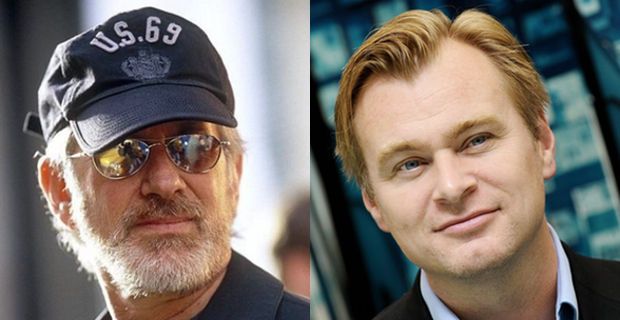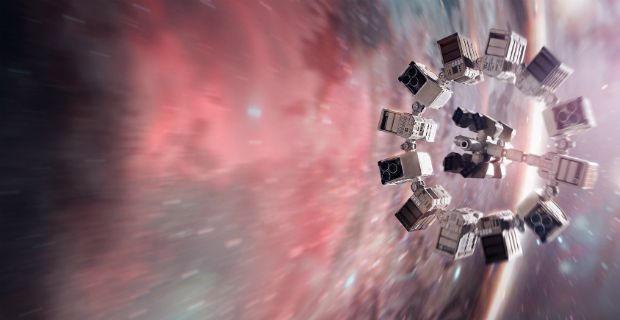Christopher Nolan's Interstellar recently opened in theaters, and those who have seen it can say with confidence that the sci-fi drama plays into the director's established wheelhouse (in ways good and bad) thanks to its strong visuals, heady ideas, and (debatable) plot holes (read our review). While the film certainly seems like it was intended to be Nolan's from the get-go, he wasn't the first auteur to get his hands on the project.
Nolan's brother Jonathan was attached as Interstellar's writer since its inception, but Steven Spielberg was originally in the director's chair before C. Nolan came on board and rewrote the script to incorporate his own ideas into the screenplay. Both filmmakers have their own distinct voices that are arguably different, so some are most likely wondering what effect (if any) the shift had on the overall production.
In an interview with Spinoff, J. Nolan opened up on that subject, saying that Interstellar by and large remained the same throughout the process:
"What’s great about working with my brother is that he came armed to this with some of his own ideas that kind of mind-bending aspect of what might be out there beyond the infinite. So I think the spirit of the film is very similar, but Chris brings his own unique take on it."
C. Nolan worked closely with astrophysicist Kip Thorne (who received an executive producer credit) while working on Interstellar, so it's most likely that the "mind-bending" elements J. Nolan is referring to comes from those interactions. That said, there are running themes throughout the film that feel distinctly Spielbergian; namely the sense of amazement at the great unknown and the father/daughter relationship between Cooper (Matthew McConaughey) and Murph (Mackenzie Foy). It's easy to see how the E.T. director could have made this his own with a few tweaks.
One of our criticisms of C. Nolan's filmography is that he is "all brain, no heart," something he attempted to remedy with Interstellar. Cooper is just as obsessed as Nolan's other protagonists, but his outlook of the world around him (humanity should strive to explore and go beyond) is a little less cynical than the ones that came before him. That's probably the "spirit" J. Nolan discusses, and since McConaughey was one aspect of the film to receive near universal praise, C. Nolan was smart to leave that untouched.
Interstellar is also making waves for the claim that the production team did not use any green screen when filming and did the effects practically. This has been one of Nolan's calling cards for years, and it usually leads to outstanding results (see: Inception). In the post-Gravity world of visual effects, people aren't as enthralled by the director's portrayal of outer space as he might have hoped, but there's still something to admire about this approach.
J. Nolan touched upon his brother's filmmaking techniques in his interview:
"There’s a lot of versions of this film that might have been kind of an animated movie. But I’m drawn to working with filmmakers like Steven and like Chris who are committed to the old fashioned art of movie making: go out and make it for real."
Unless we can travel through a black hole to an alternate reality and see Spielberg's Interstellar, it's impossible to say what might have changed from a production standpoint if he had remained in charge. Both helmsmen are known for breathtaking set pieces that at times will seamlessly blend digital and real effects, so it's safe to say that the film would have looked spectacular regardless of who was behind it.
As for whether or not Spielberg would have delivered something that better balanced Interstellar's scientific and human parts... we'll let you fine readers debate that in the comments.
Interstellar is now playing in theaters.
Follow Chris on Twitter @ChrisAgar90.
Source: Spinoff


